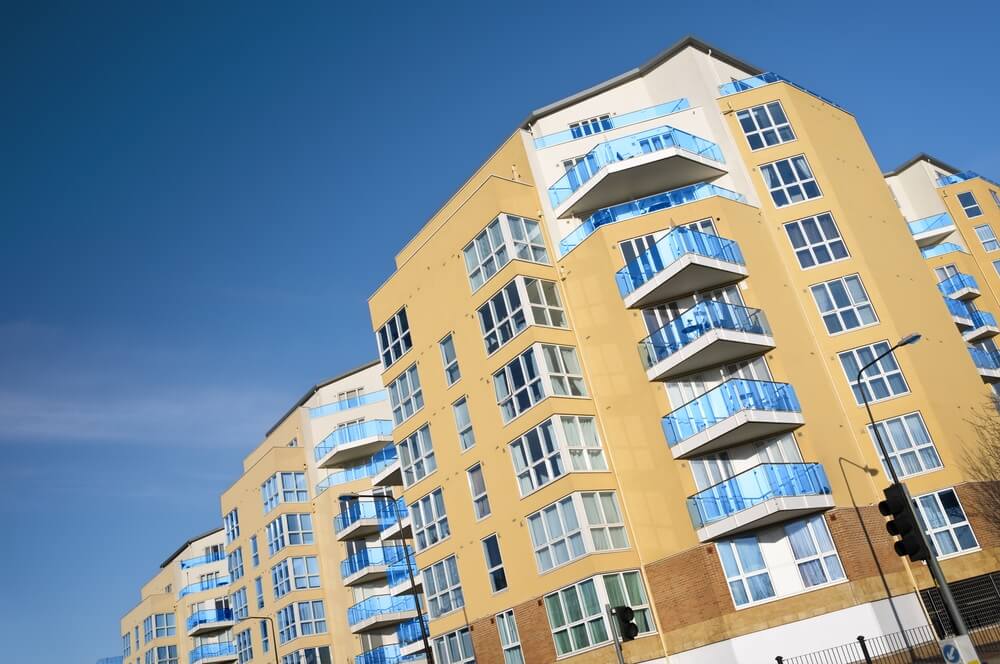Leasehold reforms are on the horizon – but are they in close enough proximity for new buyers to benefit? John Jones is not so sure. In the meantime, he explains four key points all those buying a leasehold should know
 Planned reforms to the leasehold system in England and Wales took another step forward at the end last month when the much-anticipated Leasehold and Freehold Reform Bill had its second reading in the House of Lords.
Planned reforms to the leasehold system in England and Wales took another step forward at the end last month when the much-anticipated Leasehold and Freehold Reform Bill had its second reading in the House of Lords.
The proposed bill would bring huge benefits for those looking to buy a leasehold property, of which there are estimated to be almost five million – mostly flats – in England alone.
Despite housing secretary Michael Gove’s confidence that it will become law this side of a general election, however, few in the property industry share his optimism.
The bill must still pass through several stages before receiving royal assent – including detailed scrutiny of any amendments, of which there are currently 88 pages.
Factoring in the summer recess and the necessary period of purdah prior to a general election which will take place in October at the latest, buyers thinking of putting their plans on hold to benefit from the changes could find themselves in for a long wait.
For those looking to buy a leasehold property, my advice would be to carry on so long as you consider the following key points.
-
How long is the lease?
With any leasehold property, you own the lease but not the land and, when that lease expires, ownership reverts to the freeholder. The length of a typical flat lease is 99 years or more but, if it is shorter than that, it may cause issues when it comes to getting a mortgage or remortgaging, or if you decide to sell the property in the future.
Your conveyancer may be able to negotiate with the landlord – usually the freeholder – to agree a voluntary extension in exchange for an agreed price. If this isn’t possible, you can make a formal statutory application to the landlord called a section 42 notice, but you must have been the leaseholder for two years. It is also worth noting here that the shorter the lease gets, the more it is likely to cost to extend.
-
Factor in the ground rent
Ground rent is a charge that leaseholders pay to the landlord, usually on a quarterly or annual basis. It has been the subject of much controversy in recent years after an investigation by the Competition and Markets Authority found that many homeowners were being forced to pay exorbitant increases due to the rent review provisions in their leases.
As of 30 June 2022, ground rent was restricted to a peppercorn in relation to all newly granted long residential leases but can still be charged for older properties, so it is wise to clarify how much it is and whether it will increase.
Some will be a nominal amount – up to £250 per year – but there have been cases where leaseholders have found themselves locked into paying thousands of pounds, for example, where the rent doubles every five years during the term of the lease.
Aside from being expensive, costly ground rent is also likely to put off potential buyers should you later decide to move.
-
Is there a service charge?
Typically, service charges will apply if the property you’re looking to buy is in a block of flats or development that has communal areas and any shared services.
They exist to cover the cost of maintenance and repairs, insurance, and the cost of management, and you may also be required to pay into a sinking or reserve fund for more expensive works.
The lease should stipulate how much the service charge is at point of sale, and how it is calculated.
The amount may vary from year to year but should still be reasonable. Leaseholders can also challenge the amount charged if they believe the landlord has not reasonably incurred those costs.
-
What are your obligations as the leaseholder?
Lease documents should give details of any contractual obligations you would be required to fulfil should you purchase the property. These can range from restrictions on sub-letting and renting out the property or running a business from it, right up to a requirement to carpet every room or to only play loud music at certain times to minimise noise.
The Leasehold and Freehold Reform Bill seeks to address many of the problems leaseholders face, for example, by relaxing the rules around lease extensions and capping charges. If enacted, it will be the biggest change to the system in decades.
However, if the law isn’t passed by the time the country goes to the polls, it may also drop down the priority list for a new government. Buyers may choose to wait, but it is a gamble which I’m not sure will pay off.
John Jones is head of conveyancing at Jackson Lees














